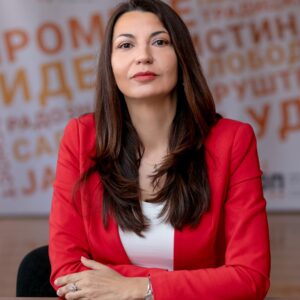RESEARCH TITLE
Contributing to Modern Partnerships: Assessments of Sino–EU–Serbian Relations (COMPASS)
RESEARCH FIELD
International politics and economics
RESEARCH SUBJECT
Analyses of political, security and economic dimension of relations between Serbia and China and Serbia and the EU.
PROBLEM
The Republic of Serbia has adopted an independent and multi-vector foreign policy and military neutrality, implying concurrent political, economic, and security cooperation with number of external partners – the EU, the PR China, the USA, and Russian Federation. However, the four pillars of Serbian foreign policy and economy have been called into question lately. After the world economic crisis and Covid-19 pandemic, burdened by its problems, the United States reduced its presence and influence in Serbia. Russian Federation is still trying to maintain its influence in Serbia, based primarily on the political support for Serbia’s positions on the Kosovo and Metohija issue. Therefore, the premise is that in the next ten years the main contest for establishing political and economic dominance in Serbia will be between the EU and China. It is essential for Serbia’s strategic orientation to identify all existing and potential risks, in order to protect its national interests.
Тhe main goal of this project is to map and to assess the risks and conflicts, that exists and that can arise, due to the determinants of Serbia’s foreign policy towards simultaneous and strong comparative cooperation with the EU and with China, in order to rationalize the evidence-based foreign policy decision-making process by Serbian authorities.
RESEARCH
The research will be conducted by researchers from the Institute of International Politics and Economics (the project coordinator) and the Institute of Social Sciences. Project team will utilise literature review, qualitative content analysis of Serbia’s policy-relevant documents, public opinion surveys, and Delphi method to identify risks’ types Serbia is faced with.
The assessment will deploy innovative risk assessment matrixes that combines three areas of Sino-Serbian and Serbo-European relations – politics, security, and economy. Novelty of this project is represented in interdisciplinary approach with a risk matrix as a quantitative and qualitative technique that was not used in such a manner in issues related to the scope of the project in Serbia. Theoretical concept of hedging intertwined with an innovative risk assessment methodology is the first such comprehensive analytical approach to small countries’ behaviour in international relations and, thus, a novelty for the field of international relations.
RESULT
Research findings will be the result of empirical research and application of advanced scientific methods. The results of the project should indicate the mutual connection and interaction of various parameters of importance when making complex decisions.
The results of this project are important for defining public policies, especially in the field of foreign, security and economic policy. The recommendations arising from the project are important for the official bodies of the Republic of Serbia in the mentioned areas, and above all: the Ministry of Foreign Policy, the Ministry of Economy, the Ministry of European Integration, the Ministry of Defense, and the Chamber of Commerce.
The project leader is Ivona Lađevac from the Institute of International Politics and Economics.

